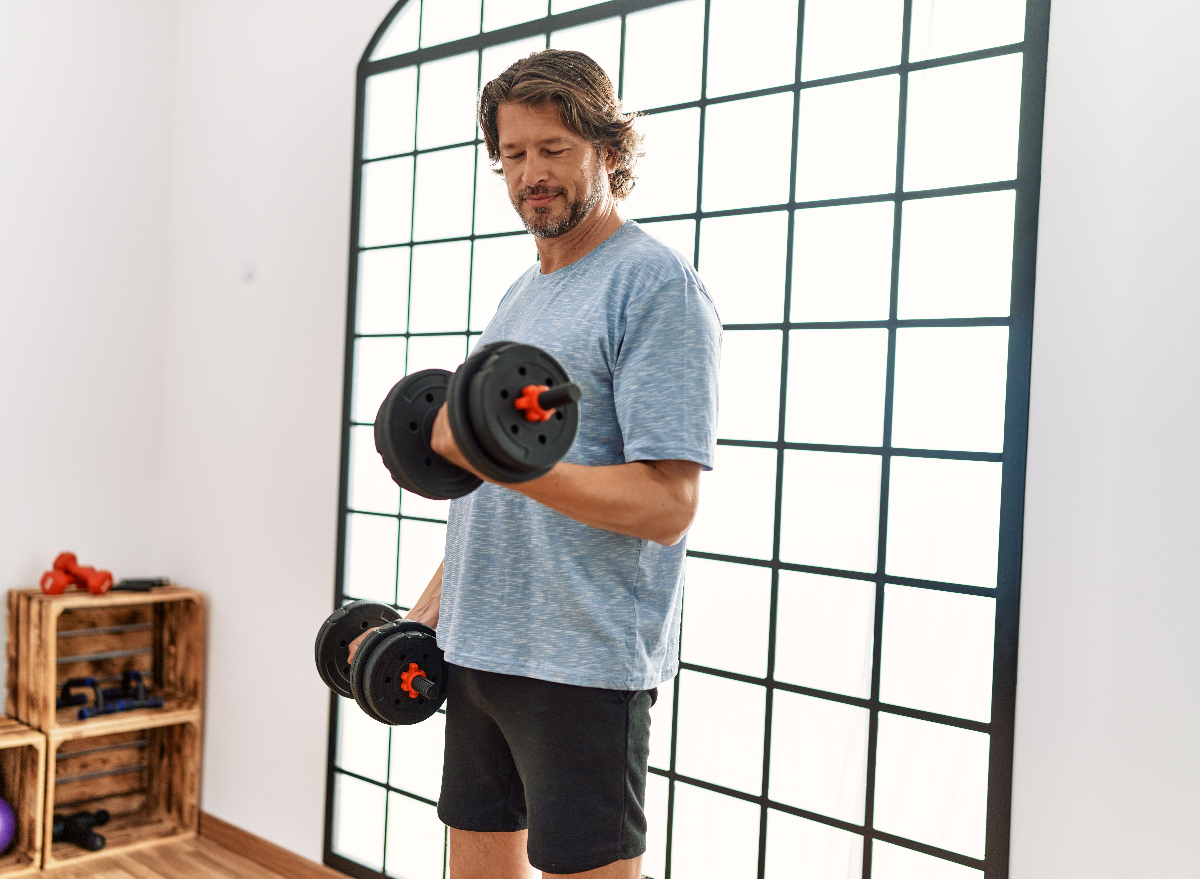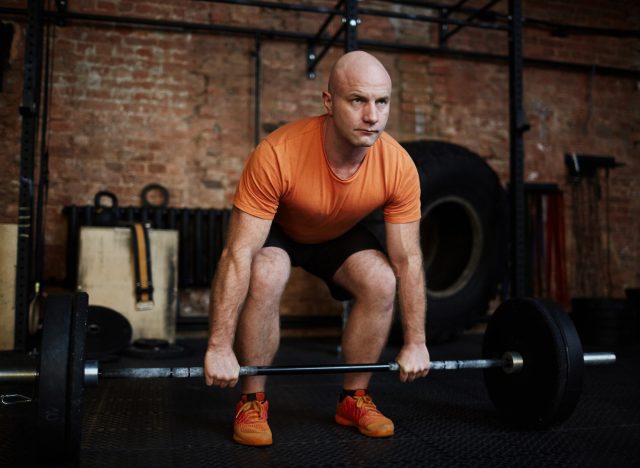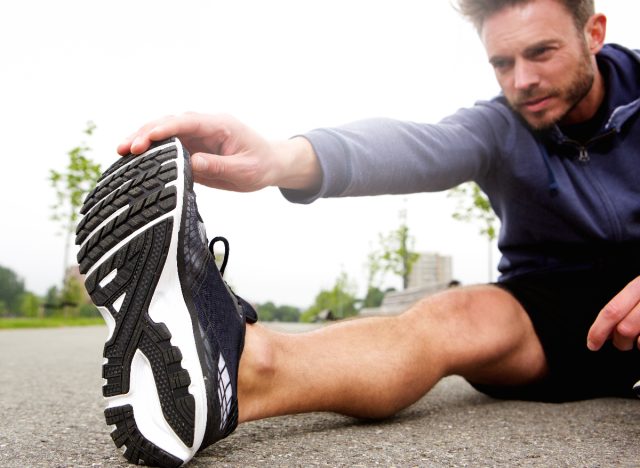The Best Weight Training Tips for Getting Fit and Strong After 40

Building strength as you age is incredibly important. Getting to the gym to lift weights can help you improve your strength, maintain your muscle mass, increase your mobility, and help you lead an all-around healthier life, according to the National Institute on Aging. If this sounds like a solid plan to you, it most certainly is! Check out these weight training tips for how to get stronger after 40, according to a top trainer. Being in amazing shape as you age is the best form of self-care you can give to yourself.
Many people take strength training seriously after 40, and for great reason. Your strength and muscle mass are usually at their best when you're 30 to 35 years old, the National Institute on Aging reports. As you age, the way you perform physical activity and your muscle strength decrease. If you don't work out to compensate for your muscle loss, by the time you reach 70 years of age, you can have difficulty with simple daily tasks. In fact, according to research, approximately 30% of people 70 years of age and older have a more difficult time walking up steps, standing up from a seated position, and even walking. Compromised mobility is related to chronic illness, falling more, and death. So it's time to consider some resistance training moves in order to build muscle and hold on to your independence.
To learn some great advice, Eat This, Not That! reached out to Tyler Read, a personal trainer who's been involved in the health and fitness world for the past 15 years and the founder of PTPioneer.com. You're sure to find Read's weight training tips helpful to get stronger after 40! Keep reading to learn more, and next, don't miss The Best Leg-Strengthening Exercises for Seniors.
Lift heavy weights that match your strength level.

It's always important to know your limitations. Read stresses, "Lift heavy weights that match your strength level."
According to Beachbody, you should gauge how much weight you lift by your ability to perform your total reps and sets without compromising good form. If you aren't able to hold proper form, you may be lifting too much weight and are putting yourself at risk of injury.
Keep a few reps in reserve.
Another great tip Read recommends is to "keep a few reps in reserve." Practicing repetitions in reserve (aka, RIR), means adjusting your workouts based on how you feel that particular day, so you can get the most out of your fitness session, according to Fitness Liberty. The rule of thumb is to perform one to two "reps in reserve" at the time of wrapping up your exercise. So if you're having an off day and are tired, sore, or simply not feeling on your typical A-game, instead of completing 10 reps, lower your weight accordingly so you can complete 11 or 12 reps. The extra one to two additional reps are your "reps in reserve."
Know that strength is a skill that's achieved over time.

As with most goals in life, they are typically long-term. Have patience, and don't skip any key steps along the way. For instance, according to Harvard Health Publishing, be sure to warm up properly each time you work out. It's just as important to cool down with some stretches. It's also critical to be consistent with your regimen. A two or three-day-a-week workout is perfect. With consistency, you'll start building strength and muscle and notice a difference in no time.
Avoid performing exercises too fast or using more weight than you can control.
Note that it's important to concentrate on your form, according to Harvard Health Publishing. Using bad form can result in injuries as well as more gradual progress. Experts agree that a great plan is to begin with extremely low weights and be mindful of slow, controlled lifting movements. You should lower the weights with the same level of control. Start things off with a lighter weight or no added weight at all, and add weight as you master each level.









